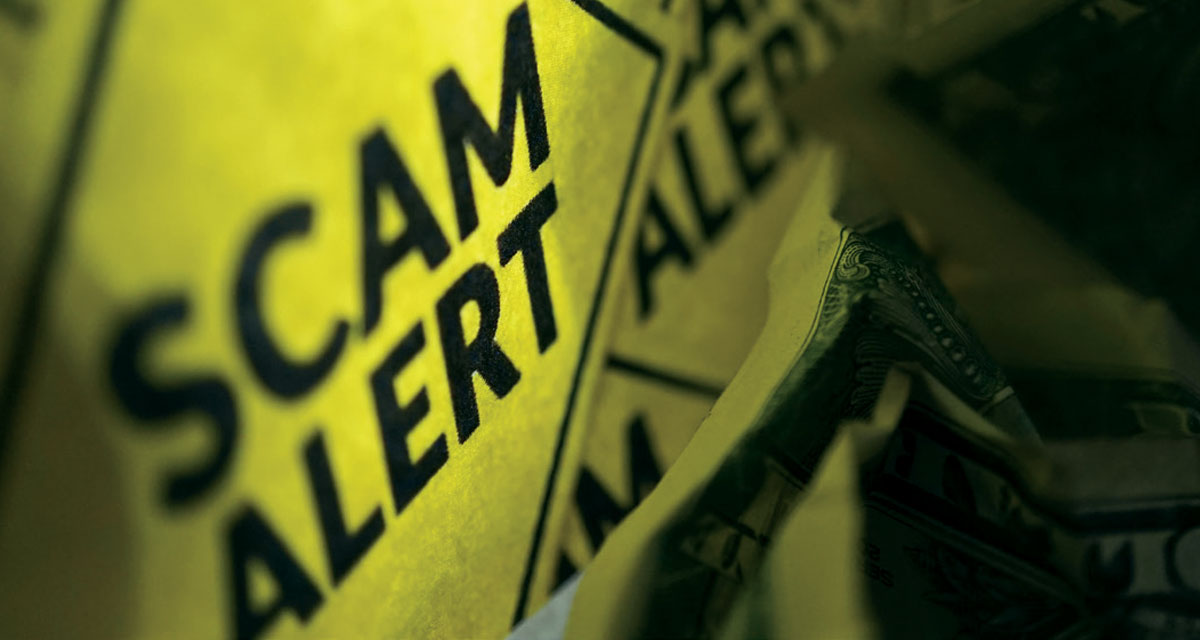Scammers are preying on uncertainty and financial hardship and adjusting their tactics to take consumers personal information and deplete their wallets. In the second quarter of 2020, the total loss to North Carolinians in COVID-19 scams came at a cost of $11 million. Of 24,358 total fraud reports, 8,279 were identity theft.
It’s more important than ever to remain vigilant against cyberattacks as tactics change and threats evolve. The Federal Trade Commission advises that one of the biggest clues you’re dealing with a scammer is that they want it fast and they’ll ask you to pay in ways that make it hard to track them down.
Utility Scams
Scams targeting electric and natural gas customers are on the rise, with new tactics related to COVID-19 that aim to trick utility customers out of money and personal information. A record number of scammers attempts to targeted Duke Energy customers in June, hitting more than 4,000. The total number of scam attempts reported by Duke Energy customers so far in 2020 – more than 15,000 – already is approaching 2019’s full-year total of 18,000.
One of the newer tactics used by scammers promises to mail customers refund checks for overpayments on their accounts if they can confirm their personal data, including birthdays and, in some cases, social security numbers. Duke Energy and its subsidiary Piedmont Natural Gas say they typically apply refunds as a credit to customers’ accounts and will not contact them to verify personal information by phone, email or in person in order to mail a check.
Contact Tracing Scams
Contact tracers work for state health departments to try to track anyone who may have been exposed to COVID-19. Some scammers are using contact tracing to steal your identity, your money – or both. To tell the difference, the Federal Trade Commission recommends watching for a few signs.
A real contact tracer might get in touch to discuss results of a test you know you took, or because someone you’ve been in contact with tested positive. They may ask you for your name and address; health information; the names of places and people you have visited. Scammers will ask you to do more.
Legitimate contact tracers may call, email, text, or visit your home to collect information. The North Carolina Attorney General’s office says that you will get an initial text from the number 45394 or email from address NC-ARIAS-NoReply@dhhs.nc.gov – and that it is safe to click on links in this text or email. After this, you will receive a call from your local health department or NC Outreach – if you can’t be reached, in-person visits using PPE will be conducted. Multiple attempts will be made to reach out.
To protect yourself, be on the lookout for anyone who asks for social security or account numbers, or immigration status. Legitimate tracers won’t ask for this and it’s best not to respond to those requests. Real tracers will only send texts or emails and say they will be calling you. The FTC also recommends checking with your state’s health department to make sure the person is a real contact tracer.
COVID Mask Exemption Cards
To help limit the spread of the Coronavirus, many states are requiring people to wear face coverings in places open to the public. The FTC warns there are “official looking” seals on cards circulating online and on social media that say the holder has a disability that prevents them from wearing a mask, and that it’s illegal for any business to ask them to disclose their condition.
These cards aren’t issued or endorsed by U.S. Department of Justice, or any other federal agency, and the agency urges the public to visit ADA. gov for Americans with Disabilities Act information issued by the agency.
Stimulus Check Calls
Earlier this year, the Internal Revenue Service reported that scammers were rigging up caller ID to look like a call is coming from the government.
The agency advises consumers to hang up the phone or delete emails asking for personal information or money, and that government agencies usually will not call or email you — especially about something related to money. They almost always contact you by U.S. mail. If you have questions about Economic Impact Payments, the IRS urges you to visit their website, IRS.gov, to get answers to frequently asked questions. But you also can call the IRS at 800-919-9835 if you have questions.
Federally insured by NCUA.






















